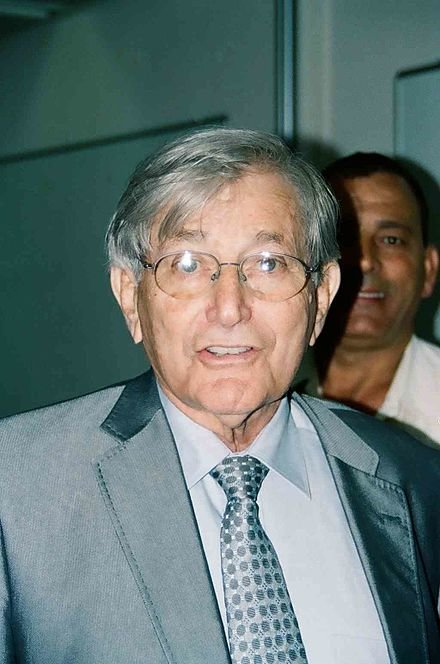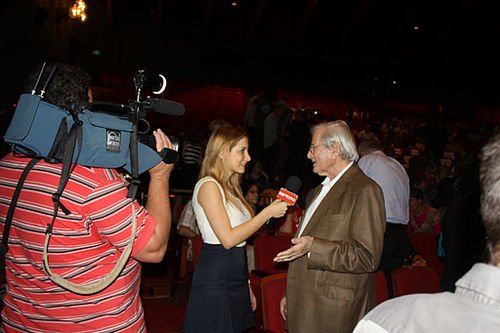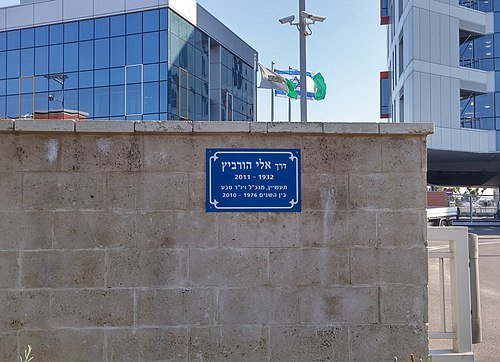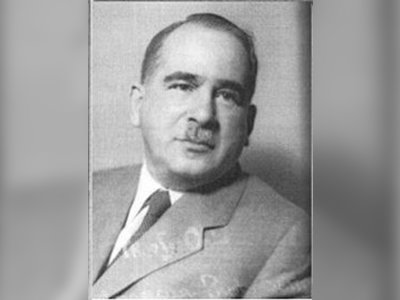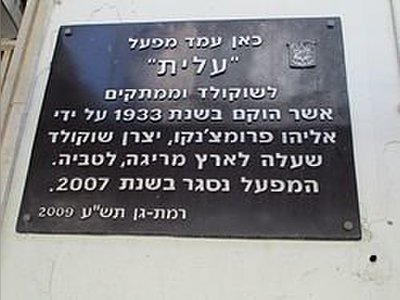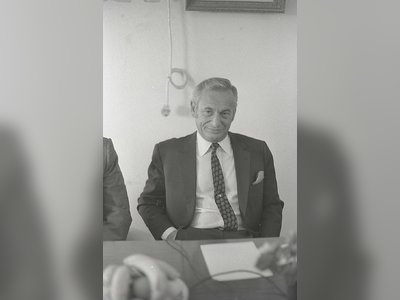Eli Hurvitz: A Legacy of Leadership and Innovation
Eliyahu (Eli) Hurvitz, born on April 20, 1932, and passing away on November 21, 2011, was a prominent Israeli industrialist whose contributions left an indelible mark on the nation's business landscape.
Serving as the CEO of Teva Pharmaceuticals from 1976 to 2002, he then assumed the role of Chairman of the Board until 2010. Under Hurvitz's leadership, Teva Pharmaceuticals grew into one of Israel's largest companies and became a global leader in generic drugs. He also served as the President of the Manufacturers' Association of Israel and as Chairman of Bank Leumi.
Early Life and Military Career
Born to Zvi and Tziporah Hurvitz in 1932 in Jerusalem, Eli Hurvitz moved with his family to Tel Aviv in 1934. He attended the Carmel School and later studied at Herzliya Aleph High School. During the War of Independence, he briefly interrupted his studies, like many of his generation, to join the military. Alongside fellow kibbutz founders, he became part of Kibbutz Tel Katzir.
During his military service, Hurvitz underwent officer training courses in 1956, which included both officer and artillery courses. He served as an officer in the heavy mortar battalion 340 of the Yiftach Brigade during the Sinai War.
In the Six-Day War, he was a fire management officer in a battalion, and during the Yom Kippur War, he commanded an unconventional force made up of heavy mortar units on the Egyptian front. Hurvitz continued to advance in the military, completing a company commander's course and, in his final role, serving as a Deputy Chief of Artillery in the rank of Brigadier General.
Teva Pharmaceuticals
In 1953, Eli Hurvitz married Delia Solomon, the daughter of the owner of Assia Pharmaceuticals and the sister of Ruth Hashin, the director of the Jerusalem Foundation and a Supreme Court justice.
While studying economics at the Hebrew University in Jerusalem, he began working as a trainee at Assia Pharmaceuticals. His rapid progression within the company, combined with his talent and connection to the Solomon family, played a significant role in his success.
In 1963, he efficiently managed the negotiations with Zori employees when Assia purchased the Zori plant. Most of the Zori employees received compensation, while the rest were integrated into Assia's operations.
Following this success, Hurvitz was appointed as Assia's manager. In 1968, Assia acquired Teva, and Hurvitz managed the consolidation process, facing initial resistance from Teva's employees. In 1976, the merger between Assia and Teva was completed, and Hurvitz became the CEO of the Teva Group. That same year, he was awarded the Industry Prize in the Chemistry category.
Upon turning 70, Eli Hurvitz stepped down from his role as CEO of Teva Pharmaceuticals, passing the leadership to Israel Makov, while he himself was appointed as the Chairman of the Board.
Public Engagements
In the mid-1970s, Hurvitz served as the CEO of the Israel Export Institute. In the late 1970s, he joined the board of directors of Bank Leumi. In 1981, he was appointed as the President of the Manufacturers' Association of Israel.
In May 1986, during a challenging period for the bank, Hurvitz was appointed as the Chairman of the Board of Bank Leumi. However, his appointment faced opposition from Ernest W. Japhet and Ezekiel H. Rimalt, who argued that Hurvitz bore responsibility for the bank's stock crisis due to his role as a member of the board during that period.
Despite expressing his dissent against the stock crisis and his readiness to resign, Hurvitz insisted on allowing Japhet to continue serving in a senior position at Bank Leumi outside of Israel. Hurvitz divided his time between Bank Leumi and Teva Pharmaceuticals.
In October 1986, following public criticism and a reduction in executive salaries due to pressure from the public and bank employees, Michael Bruno instructed Hurvitz to investigate the severance package granted to Japhet upon his departure from the bank.
Hurvitz, despite his belief that the severance package was excessive, immediately resigned from his position, demonstrating a commitment to integrity and transparency.
Legal Troubles
Eli Hurvitz faced legal issues related to tax evasion due to discrepancies in reporting his income, amounting to millions of dollars, concerning his role as Chairman of the Board of Frutarom. He was convicted in the District Court, but he appealed the decision to the Supreme Court, which eventually acquitted him.
Awards and Honors
In 2002 (5762 in the Hebrew calendar), Eli Hurvitz was honored with the Israel Prize for his lifetime achievements.
Following his retirement from Teva Pharmaceuticals, Hurvitz remained active in innovative medical initiatives and was one of the investors and founders of the Faculty of Medicine in Safed.
In 2010, he received an honorary doctorate from Bar-Ilan University, and in 2011, he was awarded the Ariel University Center's Fellow of Distinction honor. These recognitions celebrated his many years of dedication to advancing knowledge-based industries, economics, and society in Israel.
Personal Life and Passing
In November 2009, Hurvitz was diagnosed with lymphoma but successfully underwent treatment and recovered from the illness.
Eli Hurvitz passed away on November 21, 2011, due to a blood infection. He was laid to rest on November 24 at the Givat Shaul Cemetery in Jerusalem. He left behind his wife, Delia, three children, and grandchildren.
In her eulogy, Hurvitz's daughter strongly criticized the management of Sheba Medical Center, which had cared for her father. A public ombudsman from the Ministry of Health, Professor Chaim Hershko, investigated the situation and found severe failures within the hospital staff regarding Hurvitz's treatment, including a lack of proper assessment of his condition, inadequate response to critical blood test results, and the failure to monitor him during a critical period of deterioration. The hospital's department head did not adequately update Hurvitz's condition during this time, despite his presence in the department.
Political Affiliations
Eli Hurvitz was associated with the Israeli Labor Party, but he was also closely aligned with Ehud Olmert.
Despite being dubbed the "economic magician" and occasionally expressing his views on economic matters during various conferences, Hurvitz often distanced himself from politics. He once stated, "I am good at running a business, not in politics."
However, he occasionally commented on political issues. In the economic realm, when considered a candidate to replace the resigning Finance Minister Benjamin Netanyahu, he advocated for a plan to reduce poverty and suggested that Netanyahu's economic reforms, while he supported them, had been implemented hastily and not as thoroughly as they should have been. In the political arena, he supported the establishment of the separation barrier and admitted that he had "woken up from dreams" after signing the Oslo Accords.
In August 2006, following the Second Lebanon War, Hurvitz was a member of the committee established by Defense Minister Amir Peretz, led by former Chief of Staff Amnon Lipkin-Shahak. However, the committee was disbanded before it could take action after Bodenheimer announced his resignation from it for "personal reasons." Shortly afterward, the Winograd Committee was formed.
Legacy and Philanthropy
In 2012, the name of the annual conference of the Israel Democracy Institute was changed to the Eli Hurvitz Conference on Economics and Society. In 2013, the Delia and Eli Hurvitz Foundation was established, which supports activities in the fields of healthcare, education, the arts, and senior citizens.
Eli Hurvitz's legacy lives on in the businesses he built, the philanthropic efforts he championed, and his contributions to Israel's economic and industrial growth. His commitment to ethics and transparency in business and his dedication to the betterment of Israeli society continue to inspire and serve as a model for future generations.
- אלי הורביץhe.wikipedia.org
